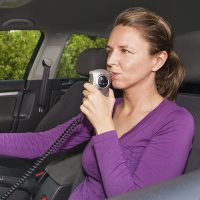New South Carolina Law Requires Ignition Interlock Devices For All DUI Convictions

When a group of people whose lives have been affected by drunk driving share their stories, the details vary from one accident to another. Some accidents involve young drivers with little experience with alcohol or with driving, while others involve drivers who were emboldened to drive drunk because they had done so in the past without causing an accident. Some DUI accidents are single vehicle collisions, while others involve a car crossing the center lane and colliding with oncoming traffic. What they all have in common is that they could have been prevented if someone or something had measured the driver’s blood alcohol content (BAC) and proven that he or she was too drunk to drive, and then refused to allow the drunk driving to continue. In other words, some DUI traffic stops are too little too late; just ask anyone who was injured in a car accident moments before the at fault driver got arrested for DUI. If you got injured in a drunk driving accident, whether or not the drunk driver got convicted of DUI, contact a Columbia car accident lawyer.
About the All Offender Law
South Carolina has one of the highest rates of drunk driving in the country; it has the third highest number of alcohol-related accidents, despite not being one of the most populous states. Therefore, South Carolina enacted a new law to curb drunk driving; the “All Offender Law” went into effect on May 19. Under the current law, South Carolina courts will order all defendants convicted of driving under the influence (DUI) of alcohol to use ignition interlock devices for at least a few months after the conviction. Previous laws only required ignition interlock devices if the driver had repeat DUI convictions or if his or her BAC greatly exceeded the legal limit of 0.08 percent.
Pursuant to the new law, everyone who gets a DUI conviction must use an ignition interlock device. It doesn’t matter whether you caused an accident, whether you had a prior criminal record, or whether you consumed enough alcohol to feel drunk.
How Do Ignition Interlock Devices Prevent Drunk Driving?
Ignition interlock devices are meant to prevent people who are under the influence of alcohol from driving. An ignition interlock device is a breathalyzer device attached to the car’s ignition. When a car is equipped with such a device, it will not start until the person sitting in the driver’s seat blows into the breathalyzer and gets a result that shows that his or her BAC is below the legal limit, and therefore it is safe to drive. Some cars even have built-in breathalyzers that function like ignition interlock devices; they measure the alcohol metabolites in the ambient air from the driver’s breath and will not start unless a sober person is in the driver’s seat.
Let Us Help You Today
The car accident lawyers at the Stanley Law Group can help you if you were injured in a drunk driving accident. Contact The Stanley Law Group in Columbia, South Carolina or call (803)799-4700 for a free initial consultation.

